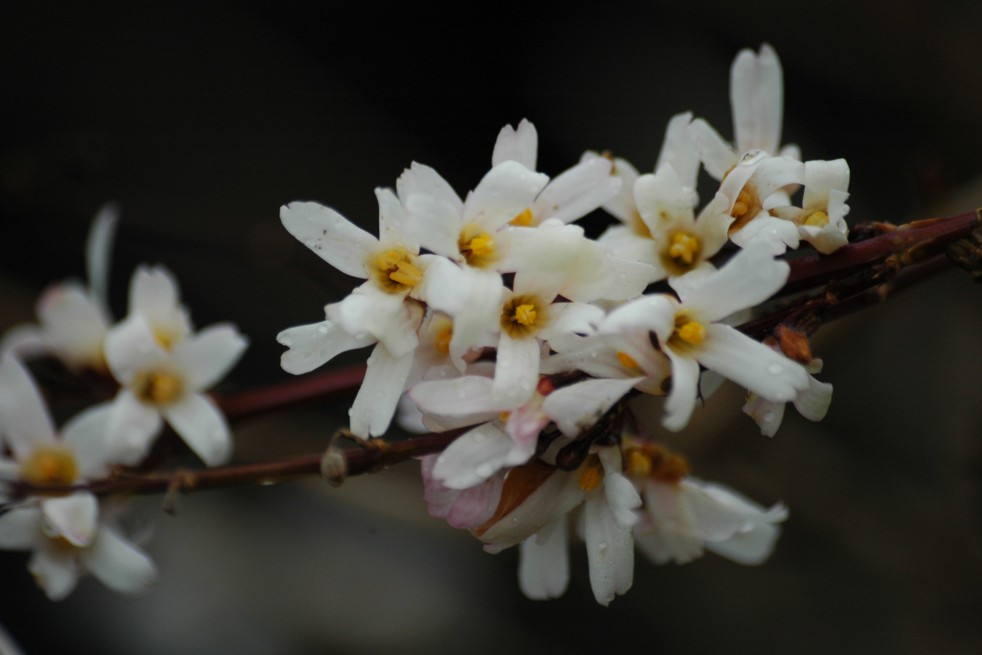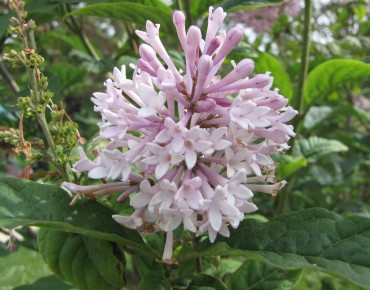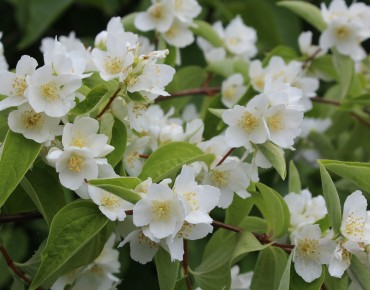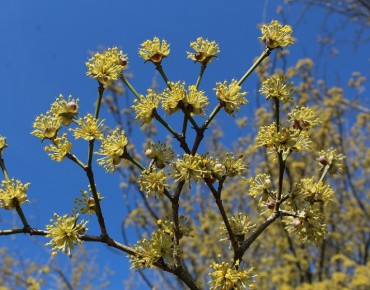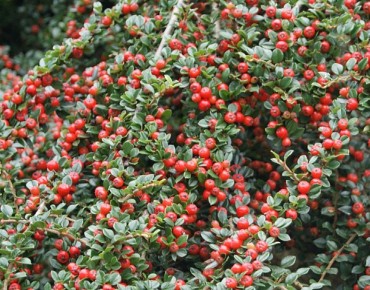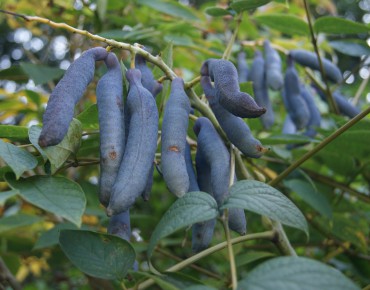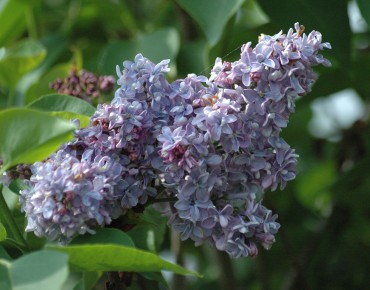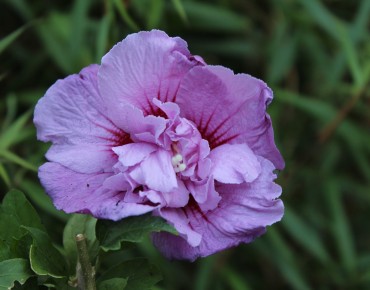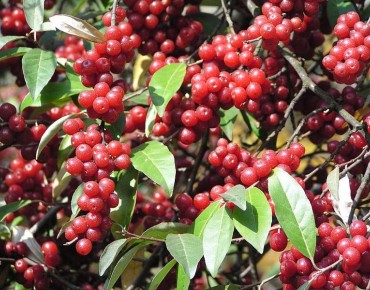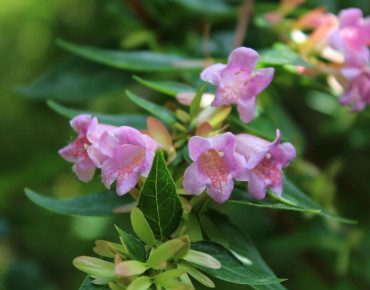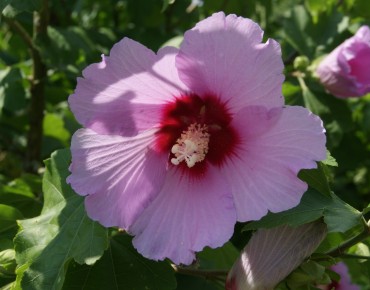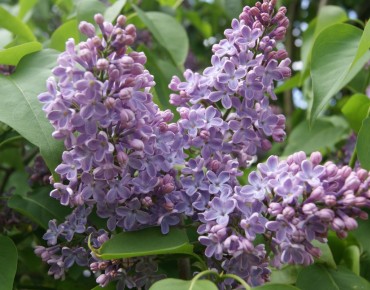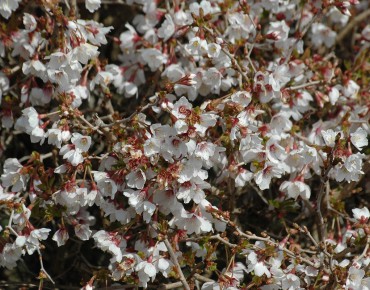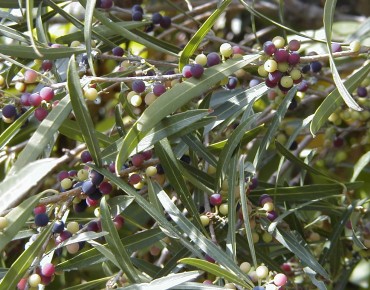- Out-of-Stock
White forsythia
Abeliophyllum Distichum
Description
White forsythia - Abeliophyllum distichum
(small deciduous ornamental shrub with fragrant winter bloom)
Origin and characteristics
Abeliophyllum distichum belongs to the Oleaceae family, like lilac and forsythia.
Less known than its golden relatives, it is valued for its understated elegance and subtle fragrance.
Description and features
- Mature height: 1.20 to 1.50 metres
- Spread: 1.50 to 2 metres
- Habit: Spreading, flexible and slightly arching
- Foliage: Deciduous, bright green turning reddish-purple in autumn
- Flowering: February to April
- Flowers: Small white to pale pink, fragrant flowers in clusters along the stems
- Fragrance: Soft and pleasant, reminiscent of almond
- Hardiness: Very good (down to -20 °C)
Position and soil
- Exposure: Full sun or light partial shade
- Soil: Light, fertile, moist but well-drained
- Tolerances: Tolerates moderately calcareous soils; avoid heavy, waterlogged soils
Planting
- Season: Autumn or spring
- Spacing: 1.50 to 2 metres depending on desired growth
- Preparation: Enrich soil with well-rotted compost to encourage flowering
Watering
- After planting: Water regularly to promote root establishment
- Later: Low maintenance; water during prolonged drought
Pruning
- When?: Just after flowering
- How?:
- Remove spent stems to encourage better branching
- Carry out maintenance pruning every 2–3 years to keep an airy shape
Propagation
- By cuttings: Semi-ripe cuttings in summer
- By layering: Easy by bending a branch to the ground
Garden uses
The white forsythia is ideal for:
- Early borders combined with spring bulbs
- Natural low flowering hedges
- Specimen planting to showcase its fragrant bloom
- Container growing for sunny patios
Disease resistance
- Hardy shrub
- Rarely affected by diseases; good air circulation prevents fungal issues
Tips for best growth
- Plant in full sun for maximum flowering
- Apply organic compost in spring to boost vigour
- Lightly mulch to retain soil moisture in summer
- Light pruning after flowering to maintain its spreading, elegant habit
Abeliophyllum distichum, with its white winter flowers, soft fragrance and colourful autumn foliage, is a true gem to brighten gardens from late winter. Modest yet precious, it will easily find its place in any garden that celebrates the seasons!
Features
- Common name : White forsythia
- Family : Oléaceae
- Category : shrub
- Spread : 1,5M
- Foliage : deciduous
- Color of flowers : white
- Use : isolated, shruberry, hedge
- Soil : rich
- Habit : Spreading
- Earth to use : universal potting soil/garden soil/compost
- Enemies : nothing to report
- Possible diseases : resistant to diseases
Expédition & livraison
How does the delivery work?
 As soon as you place your order your plants are selected
As soon as you place your order your plants are selected Each order is processed individually.
Each order is processed individually. Plants are packed, staked and labeled.
Plants are packed, staked and labeled. Packaging is carefully implemented to avoid any problems.
Packaging is carefully implemented to avoid any problems. Packages are ready to be shipped.
Packages are ready to be shipped.
Our delivery methods
Shipping of our plants throughout Europe (except overseas and islands).
Customer reviews

